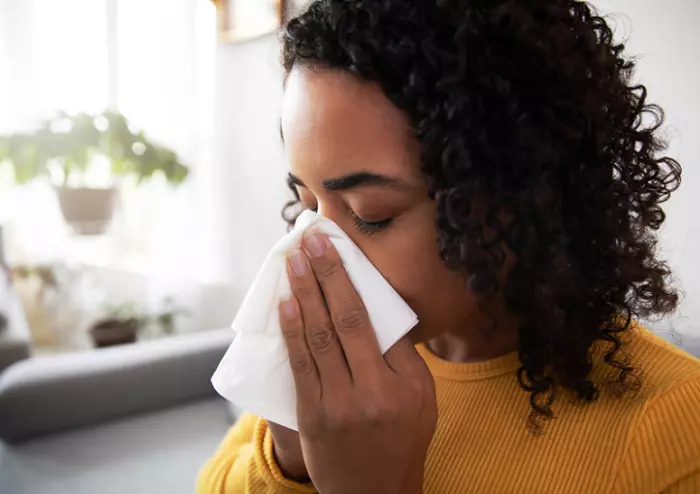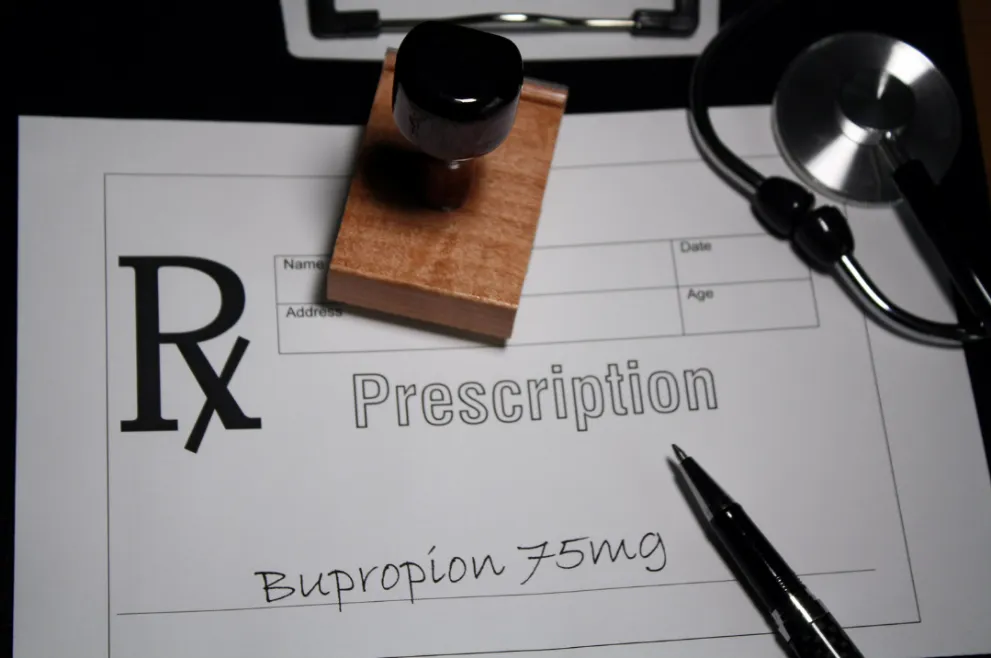Written and medically reviewed by Dorcas Morak, Pharm.D
Symptoms of the common cold/flu can be discomforting and many seek quick medications to treat the symptoms. Asides from a stuffy and runny nose, common cold symptoms include sneezing, coughing, body aches, sore throat, headaches, and fever. These symptoms are similar to those of allergy.
Though there is a wide range of over-the-counter (OTC) drugs to relieve the symptoms it's often challenging to pick the right one for your condition. Making a wrong choice can make your symptoms persist for a longer period. This article will show you how to know the right cold medicines for your condition.
How is Runny Nose Different from Nasal Congestion?
A runny nose is a common name for rhinorrhea. It is thin, watery mucus that drips out of your nose or down the back of your throat. A runny nose is an immune response to the cold virus, flu virus, cold temperatures, or allergy.
While nasal congestion, a common term for rhinitis, is the inflammation of the blood vessel in the nasal membrane which causes obstruction of airflow and makes breathing difficult. Usually, thick mucus clogs your nose and gives you a stuffy nose feeling.
How to Relieve your Runny Nose Fast
Antihistamines are commonly used to relieve runny noses, sneezing, and watery eyes that come with flu. It dries up the secretion and relieves the discomforting runny nose.
There are two generations of antihistamines for runny noses, first and second generations. The possibility of causing sedation is the major difference between them. The first generations are sedative and best for the night while second generations are non-drowsy and best for daytime. Examples of first generations are diphenhydramine(Benadryl), and chlorpheniramine (Chlor-Trimeton) while that of the second generation are loratadine (Alavert), cetirizine (Zyrtec), desloratadine (Clarinex), and levocetirizine (Xyzal).
What are the Best Medications for Nasal Congestion?
You will need a nasal decongestant to relieve the stuffy nose symptoms. Nasal decongestants are vasoconstrictors which reduce swelling of blood vessels in the nose. It can be administered orally or locally instilled into the nose. Nasal decongestant is available as a single formulation e.g pseudoephedrine (Sudafed, Contac), and co-formulation with other drugs e.g NightQuil and DayQuil. Examples of nasal decongestants spray are oxymetazoline (Afrin, Sinex) and phenylephrine (Neo-Synephrine). Long-term use of the spray is not advisable as it can cause rebound congestion.
Also, you can use preservative-free saline nasal spray (Calpol Saline Nasal Drop) to loosen the thick mucus that is clogging your nose and soothe the inflamed passage.
What is the Best Medication for Cough?
Coughing occurs as a result of the irritating effect of mucus that drips down the throat. The following medications provide effective treatment for coughs:
- Antihistamines: Antihistamine can relieve cough reflex because of its action in drying up the secretion. Examples include Tri-Sudo and Benadryl allergy and cold.
- Expectorants: Expectorants thin out the mucus in the throat and make it easier to cough it out. It is typically indicated as a chesty cough. Expectorants are available as a single formulation or co-formulated with other flu medications. Examples are guaifenesin (Organidin NR), and potassium iodide (IOsat)
- Cough suppressants: Cough suppressants, also known as antitussives, work by blocking the cough reflex in the brain. They are typically indicated for a dry cough. Examples of antitussives are dextromethorphan (Balminil DM, Benylin DM), and benzonatate (Tessalon).
What is the best Medication to Relieve Sore Throat, Fever, and Aches?
- Sore throat: Local anesthesia like benzocaine is an active ingredient of lozenges used to soothe sore throat pain. Examples are benzocaine oropharyngeal (Orajel Adult, Anbesol Baby)
- Fever and Aches: You can use acetaminophen(Tylenol) or non-steroidal anti-inflammatory drugs (NSAIDs) to relieve fever and pains. Acetaminophen is effective and safe for most people for pain and fever. It is co-formulated with some cold medications. Furthermore, you can use NSAIDs like aspirin, ibuprofen, and naproxen instead of acetaminophen. Aside from the benefits of acetaminophen, NSAIDs have good anti-inflammatory activity and work better to relieve aches. Some cold medication contains acetaminophen with NSAIDs together. Note that NSAIDs like aspirin are contraindicated in people with bleeding GI ulcers, hemophilia, ulcerative colitis, etc.
Remember your right choice of cold medicines depends on your symptoms. So, chose the right medications, drink enough water, and have enough rest to hasten your recovery. If your symptoms do not improve after three days, consult your healthcare provider. There may be an underling condition that needs proper diagnosis and treatment.
How much do these Medications Cost?
Medications for the runny nose are OTC which means your health insurance does not cover it. The cost depends on the type you want to buy and where you are buying it. A free RxLess prescription discount card or coupon can save up to 88% on your medications. Download or text yourself a card today, and start enjoying an amazing discount at over 70,000 pharmacies including CVS, Walgreens, and Rite Aids.

















